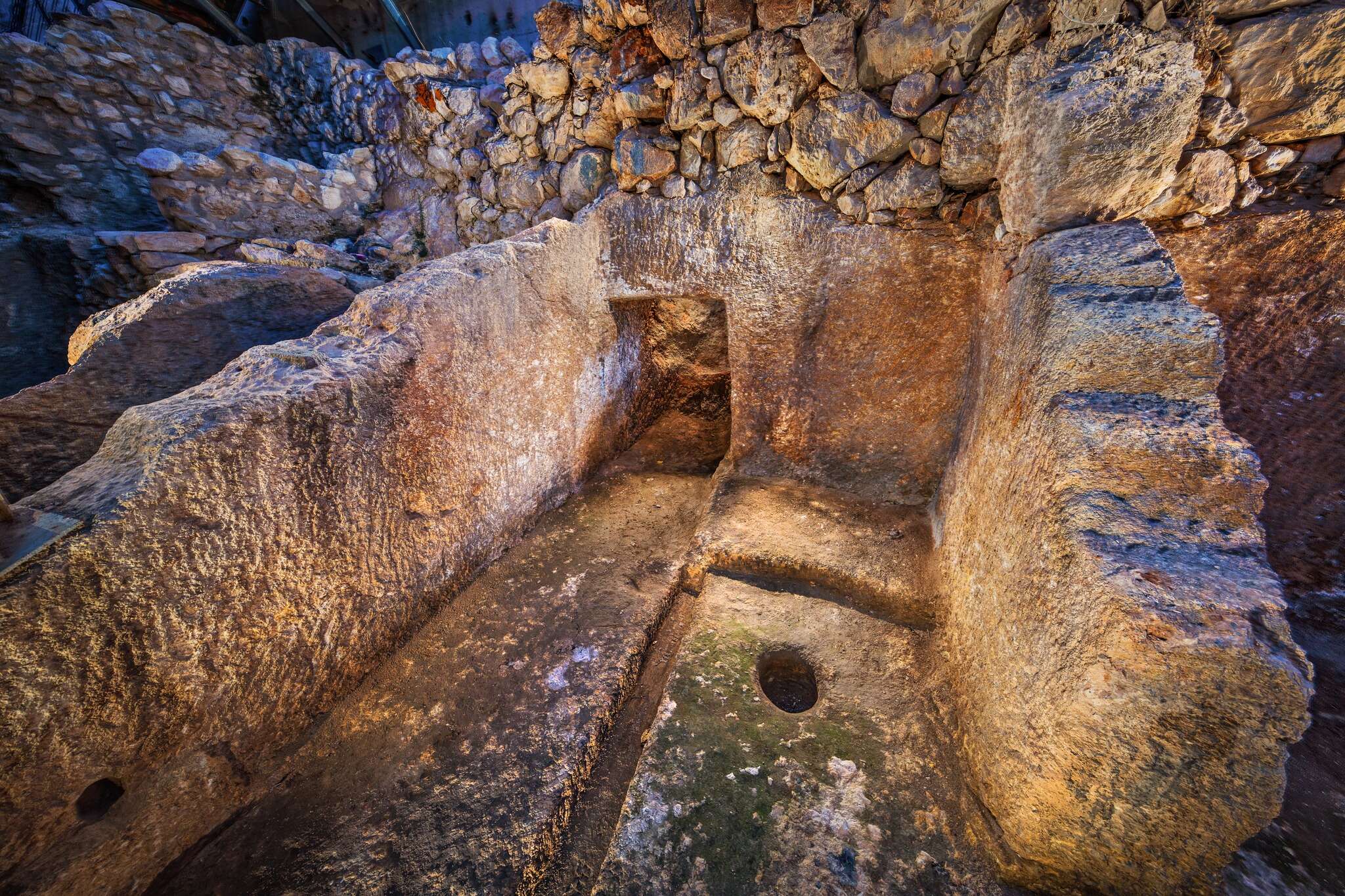Archaeologists have uncovered a unique ritual structure from the First Temple period on the eastern slope of Jerusalem's City of David, marking a significant discovery that sheds new light on ancient Jewish religious practices.
The structure, excavated by the Israel Antiquities Authority within the Jerusalem Walls National Park, features eight rock-hewn rooms containing various ritual installations, including an altar and a standing stone, excavation director Eli Shukron revealed in a new article published in the scientific journal 'Atiqot.
"The structure appears to have served ritual purposes while the Temple stood on the Temple Mount, just a few hundred meters away," Shukron said. The complex, spanning approximately 220 square meters, represents the only known ritual structure from this period discovered in Jerusalem.

The complex included specialized installations in each room – an oil press, a winepress, and what researchers identified as an altar with a drainage channel. A significant standing stone, known as a masseba, was also discovered, indicating likely ritual activity.
One particularly intriguing feature, the report noted, was a room containing mysterious V-shaped floor carvings. "These carvings may have served as a base for a tripod used in ritual activities," Shukron said.
The excavation team also discovered a small cave at the edge of the structure containing artifacts from the eighth century BCE, including pottery with ancient Hebrew inscriptions, loom weights, decorative seals, and grain-grinding stones.




